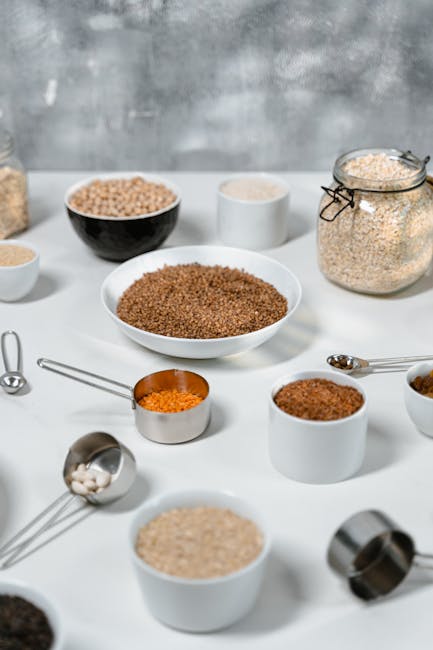Master Your Healthy Cooking Skills with This Essential Guide to Organic Cookware and Techniques
Welcome to the world of healthy cooking! Whether you are a seasoned chef or just starting out in the kitchen, one of the most important aspects of creating delicious and nutritious meals is the cookware and techniques you use. In this comprehensive guide, we will explore the benefits of organic cookware and provide you with essential techniques to elevate your cooking skills and enhance the flavor and quality of your meals.
Benefits of Organic Cookware
Organic cookware is becoming increasingly popular among health-conscious individuals, and for good reason. Here are some of the key benefits of using organic cookware:
1. Non-Toxic
One of the primary advantages of organic cookware is that it is free from harmful chemicals and toxins commonly found in non-organic cookware. Traditional non-stick cookware, for example, often contains Perfluorooctanoic acid (PFOA) and other chemicals that can leach into your food when heated. Organic cookware, on the other hand, is made from natural materials such as clay, cast iron, or ceramic, which do not release harmful substances when exposed to heat.
2. Enhanced Flavor
Organic cookware is known for its ability to enhance the natural flavors of your ingredients. Clay pots, for example, are porous and allow for better heat distribution, resulting in more flavorful and evenly cooked dishes. Cast iron skillets are also prized for their ability to develop a natural non-stick coating that enhances the taste of food.

3. Sustainable
Organic cookware is often made from sustainable materials that are better for the environment. By choosing organic cookware, you are supporting eco-friendly practices and reducing your carbon footprint.
Essential Techniques for Healthy Cooking
Now that you understand the benefits of organic cookware, let’s explore some essential techniques to help you master the art of healthy cooking:
1. Sautéing
Sautéing is a cooking technique that involves frying food quickly in a small amount of oil or fat over high heat. To sauté effectively, make sure your pan is preheated before adding your ingredients. Use organic oils such as olive oil or coconut oil for a healthier option. Sautéing works well for vegetables, meats, and seafood, and is a great way to retain the nutrients and natural flavors of your ingredients.
2. Roasting
Roasting is a dry-heat cooking technique that involves cooking food in the oven at high temperatures. Organic cookware such as clay baking dishes or cast iron skillets are great for roasting as they distribute heat evenly and help caramelize the food. Roasting is perfect for vegetables, poultry, and meats, and can add depth and flavor to your dishes.
3. Steaming
Steaming is a gentle cooking technique that preserves the nutrients and natural flavors of your ingredients. Organic bamboo steamers or stainless steel steamers are excellent choices for steaming vegetables, fish, and dumplings. Steaming is a healthy cooking method as it requires minimal to no oil and helps retain the food’s texture and color.

4. Braising
Braising is a cooking technique that involves searing food at high heat and then slow-cooking it in a flavorful liquid at lower temperatures. Organic Dutch ovens or clay pots are ideal for braising as they can go from stovetop to oven seamlessly. Braising is perfect for tougher cuts of meat and root vegetables, resulting in tender and flavorful dishes.
5. Grilling
Grilling is a popular cooking technique that imparts a smoky flavor to food while keeping it juicy and tender. Organic charcoal grills or cast iron grates are excellent choices for grilling as they provide even heat distribution and enhance the flavors of your ingredients. Grilling works well for meats, vegetables, and seafood, and is a fun and healthy way to cook outdoors.
Conclusion
Mastering healthy cooking is not just about the ingredients you use, but also about the cookware and techniques you employ. By choosing organic cookware and incorporating essential cooking techniques into your routine, you can create delicious and nutritious meals that will delight your taste buds and nourish your body. Experiment with different organic cookware and cooking methods to discover your preferences and elevate your culinary skills to new heights!
We hope this guide has inspired you to explore the world of organic cookware and techniques and set you on a path to becoming a master in healthy cooking. Remember, the key to success in the kitchen is passion, practice, and a willingness to try new things. Happy cooking!


